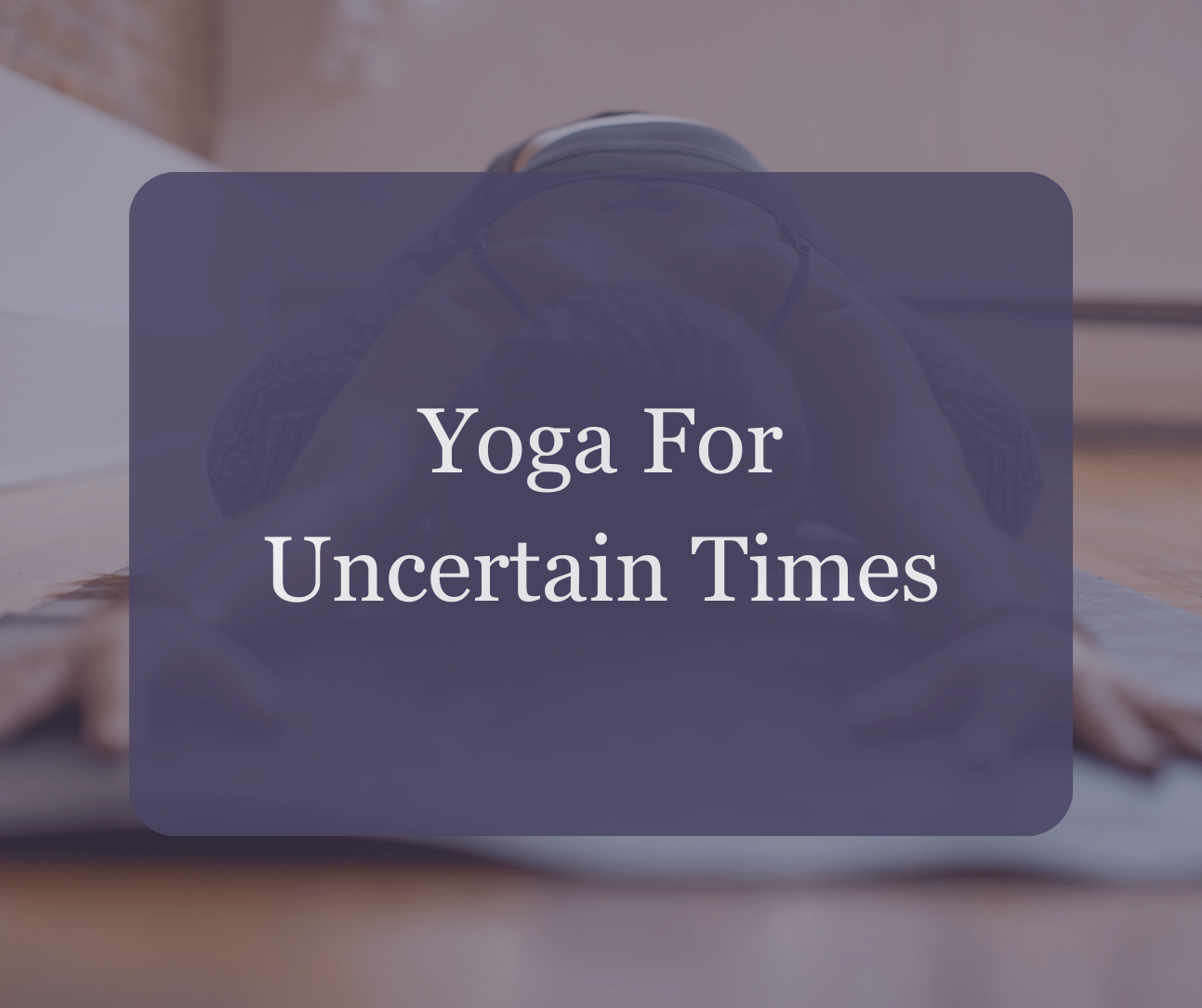Developing a deep meditation practice demands consistent daily effort. Incremental progress through daily practice enhances one's skill, and meditation is indeed a skill.
Building a new habit requires significant effort, but the challenge is not only achievable but sometimes it’s necessary. Initiating a new habit presents a dual challenge: not only are we integrating a fresh set of behaviours, but we are also detaching from previously ingrained patterns. Essentially, this process entails rewiring our brains!
Here are several ways to embrace the winter months and perhaps help cope with changes to our mood and lack of motivation, especially when the world feels challenging.
My home practice started simply. I rolled out my yoga mat and explored some of the poses and ideas that I had learned in class. I explored sitting still in meditation and pranayama. It was challenging to stay committed, but it was essential to a nourishing practice.
In the past few weeks in our Thursday evening Yoga & Mindfulness class, we have been exploring the STOP practice. It is a powerful, yet surprisingly simple strategy to help you feel more focused, alert, relaxed, and grounded in the moment.
Schedule “worry time” on your calendar…it may sound strange to create time in your day to worry. But if you become disciplined with this practice, you can give your worries a space to be.
Japanese “forest bathing” is the science of nature to heal yourself, wherever you are.
Science and research have finally proven something that mankind has known innately for centuries, that trees and nature have healing powers.
We all know the importance of physical fitness and how it impacts our health. During the pandemic, most of us valued the importance of getting outside for simple walks and staying active. When we are physically fit, we enjoy the ability to live, move and play with a level of freedom and endurance that feeds both the body and the mind.
Do you consider yourself a creative being?
Or do you believe that you don't have a creative bone in your body?
Regardless of how you answer the questions above, every one of us requires creativity to exist in our daily lives.
A morning routine is a set of actions that you curate usually before starting your day's main activity. The actions can be anything from drinking a coffee, brushing your teeth, reading your emails, or sitting for morning meditation.
At some point, we have all received the well-meaning advice to “stay positive”. To view the glass as “half full” sometimes can feel like wishful thinking or “Pollyannaish”. And it can be difficult to find the motivation to stay positive when life becomes challenging.
As we move into October and when we traditionally join together to celebrate Thanksgiving; I have been contemplating ways to shift my idea of practicing gratitude beyond this one tradition and expand my feelings of gratitude, especially during these challenging times.
How does your practice change when you are experiencing a difficult period in your life? Does your practice disappear or do you lean in and become more intentional with when and how you practice?
Have you ever experienced a time in your life when things were just ok? You got through your days with relative normalcy. You had times of stress, pain, fatigue, and feelings of being “down”. But yet, things were not so bad that you were restricted from doing the things you wanted to do; or worse, you needed help. Maybe this way of being was “normal” for you.
Throughout our whole lives, we learn, we accomplish, we fail and we grow. We hope to one day have “figured it all out” or to have at least answered the questions that plague us the most.
I remember moving away from home at the age of 18 feeling confident that I was already worldly, independent and smart. I was full of hope and in my opinion, already had an incredible sense of knowing. It amazes me when I look back and marvel at my young confidence.
Many people think that meditation is difficult. They can’t even fathom sitting still for a few minutes let alone 45 minutes. Who has time for that???
This is how I see it ... 1. we only have the moment and 2. our lives are a series of moments linked together.
I remember teasing Dr. T. several weeks ago. I poked at him, “Why would anybody want to learn about the MPC?” He rolled his eyes, laughed at me (as he usually does) and then sighed and spoke. He said with a coy smile on his face, “Robyn, this lecture will change your life! It will allow you to understand what you teach more fully. Robyn, you will come to love the MPC!”














